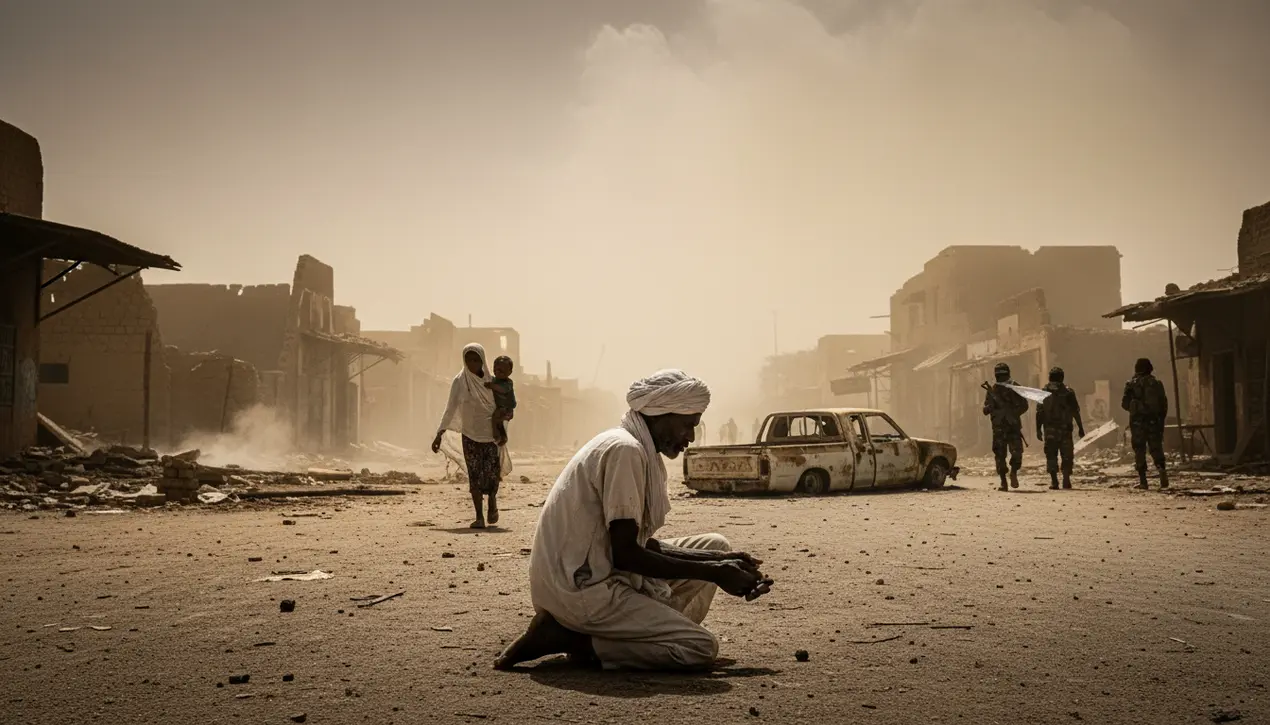
Politicssanctions & tradeEconomic Sanctions
EU Sanctions Sudanese Paramilitary Leader for Darfur Atrocities
RO
Robert Hayes
12 hours ago7 min read2 comments
The European Union has levied sanctions against a Sudanese paramilitary leader, a decisive move that formally censures the Rapid Support Forces (RSF) commander for his role in the atrocities perpetrated in the Darfur region. This action, while significant as a statement of international principle, arrives amidst a conflict that has already ravaged the nation for over a year, a grim testament to the international community's often sluggish and reactive posture in the face of unfolding humanitarian catastrophes.The war, which erupted in April 2023, was not a spontaneous explosion but the inevitable culmination of a failed political experiment. It pitted the national army, the Sudanese Armed Forces (SAF), against the RSF, a powerful paramilitary group that had been a partner in a fragile and ultimately duplicitous power-sharing agreement.This arrangement was itself the legacy of the 2019 coup that unseated the long-running autocrat Omar al-Bashir, a moment of popular hope that was systematically betrayed by the very forces meant to steward the democratic transition. The current sanctions target the financial assets and travel capabilities of a key RSF figure, aiming to cripple the group's operational capacity and symbolically isolate its leadership on the global stage.However, one cannot help but draw a historical parallel to the delayed and insufficient responses to the genocidal campaigns in Darfur during the early 2000s; then, as now, condemnations and targeted measures followed, rather than prevented, waves of extreme violence, raising profound questions about the efficacy of such tools in halting well-armed belligerents once the machinery of war and ethnic cleansing is already in motion. The RSF, born from the Janjaweed militias infamous for their brutality in the previous conflict, has been accused by human rights organizations and UN experts of executing a campaign of systematic violence in Darfur, including mass killings, sexual violence, and the burning of entire villages, acts that bear the chilling hallmarks of crimes against humanity.The EU's decision, therefore, is a necessary step in establishing a legal and diplomatic framework for future accountability, potentially paving the way for cases at the International Criminal Court. Yet, from an analytical standpoint, the sanctions exist within a complex geopolitical chessboard.Their impact will be measured against the RSF's external support, alleged to include backing from other regional powers, which could easily nullify the financial pressure. Furthermore, this move intensifies the dichotomous pressure on both warring factions, but it does little to address the immediate needs of millions facing famine and displacement, a crisis that demands a robust and unhindered humanitarian corridor which remains a distant prospect.The conflict has effectively shattered the state, turning the capital, Khartoum, into a battlefield and plunging the country into what the UN describes as one of the worst humanitarian disasters in recent memory. In the grand calculus of political risk, this sanction is a marker, a diplomatic line in the sand, but the tragic history of Sudan suggests that without a concerted, unified, and forceful international push for a negotiated cessation of hostilities—one that addresses the root causes of the power struggle and the historical grievances in Darfur—such measures risk being mere footnotes in a protracted and devastating chapter of civil war.
#featured
#EU sanctions
#Sudan
#RSF
#Darfur
#atrocities
#paramilitary leader
#conflict
Stay Informed. Act Smarter.
Get weekly highlights, major headlines, and expert insights — then put your knowledge to work in our live prediction markets.
Comments
Loading comments...
© 2025 Outpoll Service LTD. All rights reserved.